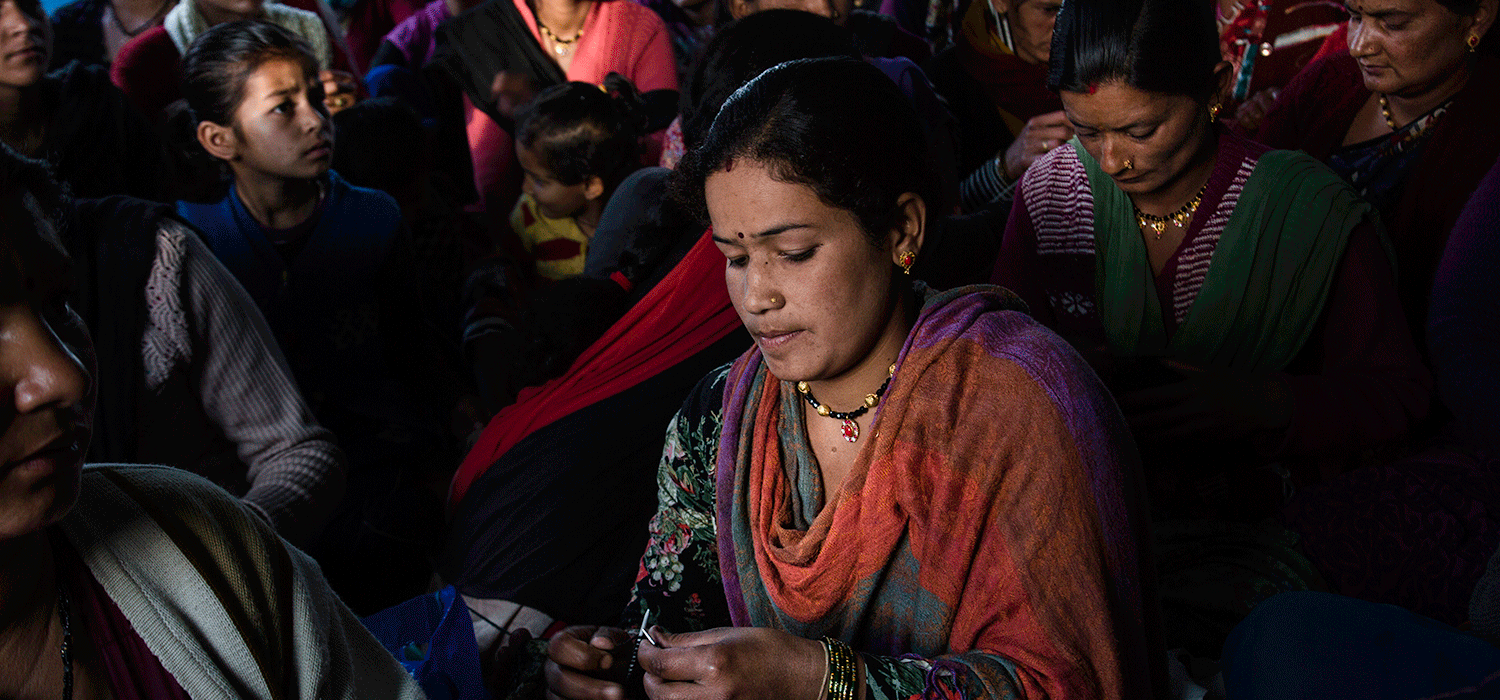
How it all began
In the remote mountain villages of northern India, families survive on small subsistence farming plots. Few economic opportunities exist, especially for women, who are often burdened with hard physical labor.
Women in the Himalayas have a long tradition of knitting and weaving beautiful clothing and blankets for their homes. They could not use these skills to develop sustainable incomes because of their remote location, lack of capital and business experience, and transportation and communication obstacles.
Naari’s knitting is done by the mothers of Chakouri, a small community surrounding Himalayan Inter College. The school provides an outstanding education to the children of the region. As a result, many women move to Chakouri from their remote mountain communities so their children can have better educational opportunities. Living in rented rooms, the women were lonely and isolated, a drastic change to the traditional relationships of their home villages. Himalayan Naari has brought them together, providing a space for them to form vibrant community away from home.

Himalayan Naari:
"What will you do for the women?"
In 2009 Himalayan Education Foundation (HEF) began
providing scholarships for children from remote rural villages to Himalayan
Inter College (HIC) in Chakouri. Each year, HEF trustees would go meet with the
parents of the scholarship students to talk about the children and their progress. In one meeting, a mother asked me,
“What will you do for the women?”
This question stopped me cold. I had no idea. Over the next few years, the question haunted me as HEF worked to strengthen HIC - building a library, computer lab, science lab, outdoor education program, dairy. Once the school infrastructure was completed in 2013, the HEF board suggested that I meet with the children’s mothers to
have a conversation about their lives. We knew very little about them.
Twenty-five woman came to our first meeting. In this initial conversation, I learned how most of them leave their home farms to bring their children to HIC in hopes of a better education. The women live in rented rooms, with no jobs, no income, no gardens to grow food and no animals for dairy. Daily they sacrifice everything for their hopes of a better future for their children. We talked about their desire to improve their lives, to have some economic independence. Together, we problem-solved,
“What could they do?”
As we talked, I noticed all of the women were knitting. Their needles flew at an astounding speed - it was almost automatic, just part of them. We soon realized that the women of Chaukori all knew how to knit very well. Although knitting was a way to clothe their families, none of the women had ever sold their work. As we talked, it became clear that their traditional skills could become a means of livelihood.
We came to an agreement that HEF would provide the women with good quality wool and in return they would knit items to be sold in the United States. Four months after receiving their first bundle of wool, the women sent their first shipment. The artisans of Naari and HEF have worked in partnership ever since.
Thank you for shopping our knits and support of our community building efforts. - Dr. Kathleen Bollerud: HEF Trustee
